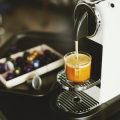Introduction to Brewing Methods in the UK
Across the United Kingdom, coffee has evolved from a simple morning ritual into an integral element of daily life and social interaction. Whether in bustling London cafés or cosy village kitchens, the British have embraced both tradition and innovation when it comes to brewing methods. Manual brewers—ranging from the time-honoured cafetière (French press) to the precise pour-over—are celebrated for their hands-on approach and ability to unlock nuanced flavours. In parallel, electric brewers such as automatic filter machines and bean-to-cup systems have surged in popularity, offering consistency and convenience for those seeking quality at speed. The choice between manual and electric methods is not just about taste; it reflects lifestyle preferences, evolving café culture, and even regional habits. Understanding these subtleties is essential when considering what brewing style truly resonates with UK coffee professionals and enthusiasts alike.
2. Overview: Manual vs Electric Brewers
When it comes to brewing coffee, UK professionals often distinguish between manual and electric brewers based on their functionality, control, and overall user experience. Understanding these differences is essential for both seasoned baristas and everyday coffee enthusiasts.
| Brewer Type | Examples | Main Features | User Experience |
|---|---|---|---|
| Manual | French press, pour-over (e.g., V60, Chemex), AeroPress | Requires user input for all steps; full control over brew variables; no electricity needed | Engaging and hands-on; allows for experimentation; may be time-consuming; demands attention to detail |
| Electric | Automatic drip machines, pod machines (e.g., Nespresso), bean-to-cup machines | Automated process; consistent results; minimal effort required; relies on electricity | Convenient and fast; less scope for customisation; ideal for busy routines or offices |
Functionality Comparison
Manual brewers offer extensive control over variables such as grind size, water temperature, and brewing time. This allows experienced users to fine-tune each cup according to their preference. In contrast, electric brewers prioritise convenience, automating most of the process. With the touch of a button, users can produce a consistent cup with minimal effort or expertise.
User Experience in the UK Context
For many in the UK, manual brewing methods are associated with ritual and craftsmanship – perfect for those who appreciate the nuances of specialty coffee. These methods are often favoured in artisan cafés or at home by enthusiasts who enjoy the process as much as the end result. Electric brewers, meanwhile, cater to those with busy schedules or shared spaces like offices, where speed and simplicity are paramount. While they might sacrifice some level of customisation, electric brewers ensure a reliable cup that fits seamlessly into daily British life.

3. Quality of Brew: Perspectives from UK Baristas
When it comes to brew quality, UK coffee professionals are meticulous in their approach, evaluating each method through the lens of flavour profiles, consistency, and extraction precision. Many baristas across London’s independent cafés and specialty roasteries argue that manual brewers—such as the V60, Chemex, or Aeropress—offer a heightened level of control over variables like water temperature, pour rate, and agitation. This granular control allows for nuanced extraction that brings out the distinctive notes of single-origin beans, which is highly prized in the UK’s burgeoning third-wave coffee scene.
However, electric brewers are not without merit. According to several UK SCA-certified trainers, modern automatic machines like the Wilfa Svart or Moccamaster have advanced to the point where they deliver remarkably consistent results cup after cup. These machines automate key parameters such as brew time and temperature stability, reducing human error and making them especially valuable in high-volume settings where speed and uniformity are critical.
Baristas often note that while manual brewing can yield a more expressive cup—highlighting delicate florals or vibrant acidity—it requires a steady hand and practiced technique. Electric brewers, on the other hand, excel at producing a reliable baseline profile with minimal training. For many British coffee shops balancing craft with efficiency, this trade-off means electric brewers are favoured during busy hours, whereas manual methods are reserved for slower periods or discerning customers seeking a bespoke experience.
Ultimately, the consensus among leading UK coffee professionals is that both methods have their place depending on context. Manual brewers are celebrated for their ability to showcase bean character and reward skillful execution, while electric brewers are praised for their ease of use and batch-to-batch consistency. The choice often comes down to whether the goal is to maximise flavour exploration or operational reliability—an ongoing debate shaping Britain’s speciality coffee culture.
4. Convenience and Everyday Use
When it comes to convenience and everyday use, UK coffee professionals often weigh the practicalities of manual versus electric brewers, both in the home setting and within café environments. While each option has its merits, factors such as speed, ease of use, and consistency are critical considerations.
Home Brewing: Balancing Routine with Ritual
For many British home coffee enthusiasts, the manual brewing process is valued for its ritualistic aspect and the control it affords. Devices like the V60 or AeroPress allow users to fine-tune variables such as grind size and water temperature. However, these methods require more hands-on involvement and time—something not every commuter or busy family can spare in the morning rush.
Electric brewers, by contrast, deliver notable advantages in terms of convenience. Bean-to-cup machines or electric filter brewers streamline the process, producing consistent results with minimal effort. Professionals note that these machines are especially popular among those seeking a reliable cup before dashing off to work. The following table outlines key considerations:
| Aspect | Manual Brewers | Electric Brewers |
|---|---|---|
| Speed | Slower, hands-on | Faster, automated |
| Ease of Use | Requires skill & attention | User-friendly, one-touch operation |
| Consistency | Varies with technique | Highly consistent results |
| Cleaning | Typically easier to clean | May require more upkeep |
| Suitability for Busy Lifestyles | Less ideal for tight schedules | Excellent for quick routines |
Café Environment: Meeting Demand at Scale
Within UK cafés, professionals highlight that electric brewers are indispensable during peak hours due to their speed and repeatable quality. High-volume settings demand efficiency; baristas rely on commercial batch brewers or espresso machines to maintain service flow and customer satisfaction. Manual methods are typically reserved for specialty offerings or when customers seek a unique experience, but they are less practical for meeting high demand.
The Professional Verdict on Suitability
The consensus among UK coffee experts is clear: while manual brewers offer greater control and an artisanal touch, electric options win out for sheer convenience and scalability. For homes, the choice often depends on personal routine and how much time one wishes to dedicate to the coffee-making process. In cafés, automation is almost essential for maintaining standards and keeping up with customer volume.
5. Sustainability Considerations
In recent years, sustainability has become a central focus within the UK coffee scene, with both professionals and consumers increasingly mindful of their environmental footprint. When comparing manual and electric brewers, it’s essential to examine how each option aligns with eco-conscious values prevalent across British cafés and roasteries.
Manual brewers such as the V60, AeroPress, or French press are often praised for their minimal energy consumption during operation. They require no electricity beyond heating water—often achievable with an efficient kettle or even on-demand hot water taps common in specialty shops. Additionally, many manual brewing devices are constructed from durable materials like glass or stainless steel, supporting longevity and reducing the frequency of replacement. The absence of electronic components also simplifies recycling at end-of-life, contributing positively to waste reduction targets embraced by numerous UK businesses.
Conversely, electric brewers—ranging from filter coffee machines to automated espresso units—typically demand continuous power during use and may feature plastic-heavy builds. Some modern machines are designed with energy-saving modes and recyclable components, but concerns persist regarding their overall lifecycle impact. Disposal of electronics remains challenging within the UK’s waste management system, especially for smaller independent cafés striving to adhere to green certifications such as those outlined by the Sustainable Restaurant Association.
Water usage is another critical factor. Manual brewing allows for precise control over water volumes and temperature, potentially minimising waste when compared to larger batch electric systems that may lead to overproduction or unnecessary rinsing cycles. However, the scalability of electric brewers can sometimes result in more efficient resource use during peak service times—a nuance not lost on high-volume venues across London and beyond.
Ultimately, UK coffee professionals tend to favour manual brewers when prioritising sustainability at a small-to-medium scale, citing reduced energy requirements and simpler end-of-life management. Nonetheless, ongoing advancements in electric brewer technology—such as improved insulation and modular repairable designs—are gradually closing the gap. Most industry leaders agree that conscious sourcing of equipment and responsible disposal practices are vital regardless of brewing method.
6. Recommendations from UK Coffee Experts
When it comes to brewing coffee, UK coffee professionals recognise that the best equipment choice often depends on context, personal preference, and the desired coffee experience. Here’s a summary of their top recommendations for home enthusiasts, café settings, and on-the-go situations:
Home Enthusiasts
For brewing at home, most UK experts lean towards manual brewers such as pour-over devices (like the Hario V60), AeroPress, or French press. These methods are praised for their ability to deliver nuanced flavours and give users full control over variables like grind size and extraction time. A key tip is to invest in a quality burr grinder and fresh, locally roasted beans to maximise flavour. Electric filter machines are recommended for those who value convenience and consistency without sacrificing too much quality.
Cafés and Professional Settings
In commercial environments, electric brewers—especially high-end batch brewers—are widely recommended due to their efficiency, scalability, and repeatability. Experts suggest that cafés should maintain at least one manual brew option on the menu for customers seeking a more bespoke experience or single-origin coffees. Proper training for staff on both manual and electric systems is critical to ensure each cup meets professional standards.
On-the-Go Brewing
For commuters or those travelling, UK coffee professionals highlight portable manual options like the AeroPress Go or compact hand grinders paired with single-serve drippers. These tools provide flexibility without reliance on electricity and can still produce a high-quality cup wherever you are. For ultimate convenience, some recommend investing in rechargeable portable electric brewers but caution that battery life and cleaning can be limiting factors.
Key Takeaways from the Experts
- Manual brewers offer superior control and a tactile brewing experience ideal for home use.
- Electric brewers excel in busy café environments where speed and consistency are paramount.
- On-the-go solutions should prioritise portability and simplicity without compromising too much on taste.
Final Tip
Regardless of method, UK coffee experts consistently emphasise the importance of water quality, precise measurements, and freshly ground coffee as fundamental elements for achieving an outstanding brew in any setting.


